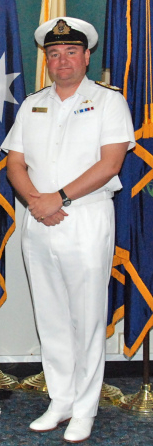EU NAVCO, the new military naval coordination operation Somalia
(B2) Code name : EUNAVCO. That's it. The situation in Somalia and off its coasts is of "serious" concern to the 27 Foreign Ministers of the European Union. They therefore endorsed, on 15 September, the setting up of a military "coordination cell" within the European Union military headquarters, called "EU NAVCO" (see conclusions).
Mission: “to support the surveillance and protection actions carried out by certain Member States off the coast of Somalia”. This within the framework of resolutions 1814 and 1816 of the United Nations Security Council which organize the fight against piracy, protection of ships chartered by the World Food Program (WFP).
Workforce : ordered by a Spanish ship captain, it will include three other people: a French frigate captain (already present), a Cypriot officer (who arrives at the end of the month) and a non-commissioned officer who is to be appointed.
Cost : 15 euros (the lowest cost of a European operation). Each State pays for the salaries of its personnel. The EU Military Staff is already installed. These are only marginal costs.
And now: the joint action which serves as the legal basis for the action should be approved by written procedure on 19 September. But above all the 27 (or rather the 26 - Denmark does not normally take part in the vote when it comes to a military operation) "approved a strategic military option relating to a possible military naval operation of the European Union. " And asked that the planning work "progress quickly".
What military options? Questioned by journalists, Bernard Kouchner, the French Minister of Foreign Affairs, who chaired the Council, was rather vague, seeming to drown the fish.. "It is not a question of having a squadron on the spot or of attacking the pirates." he explained. And to add "It is not easy to protect all fishing areas. The area to be covered is very large, it does not only cover Somalia". And the pirates are "cunning, well organized, with a central boat and fast boats that swoop down on their prey".
To the regret of having to contradict our valiant Minister of Foreign Affairs who apparently had other things to do than take care of a few fishermen struggling with pirates in the Indian Ocean, we can say that indeed:
1° A military option is under study, or rather three, which are part of the "strategic military options" (see how is a planning). 1st option = "deter" and stop the pirates; 2nd option = protect merchant ships and other vessels by providing them with an escort; 3rd option = option 1 + option 2. It is this third option that would be favored by the Member States.
2° The Spanish captain and his French counterpart are already hard at work at the Headquarters in Brussels. About ten Member States support an operation and are ready to contribute in boats (France, Spain, Germany, Netherlands) or/and men (Cyprus, Belgium, Bulgaria, Sweden, Italy, Estonia...).
3° Several experts from the Council of the EU are leaving for Djibouti, in order to study - with the French who have a permanent base there - the practical arrangements for establishing a Force Headquarters (FHQ) as well as the logistical arrangements and to assess the cost.
4° As for the command headquarters, the OHQ, the Europeans are divided. Some Member States would prefer to use that of the EU General Staff, in Brussels, which is much more practical, the political and budgetary authority being closer, that "makes a lot of things easier and saves a lot of travel"explains a European diplomat. It is only to see the difficulties OHQ Chad has in Mont Valérien. The British would prefer it to be their Northwood OHQ which also serves as a naval headquarters for NATO. But without arousing wild enthusiasm for the moment.
The objective is to to do quickly. For legal reasons: the mandate of resolution 1816 ends at the beginning of December; getting it renewed shouldn't be too much of a problem; it is still necessary to justify having taken a few steps. For concrete reasons: the number of attacks, the equipment of pirates and their audacity continues to grow. At the end of September, Canadian protection of World Food Program (WFP) ships ceased. Who will replace them? No one has volunteered yet...
(NGV)
